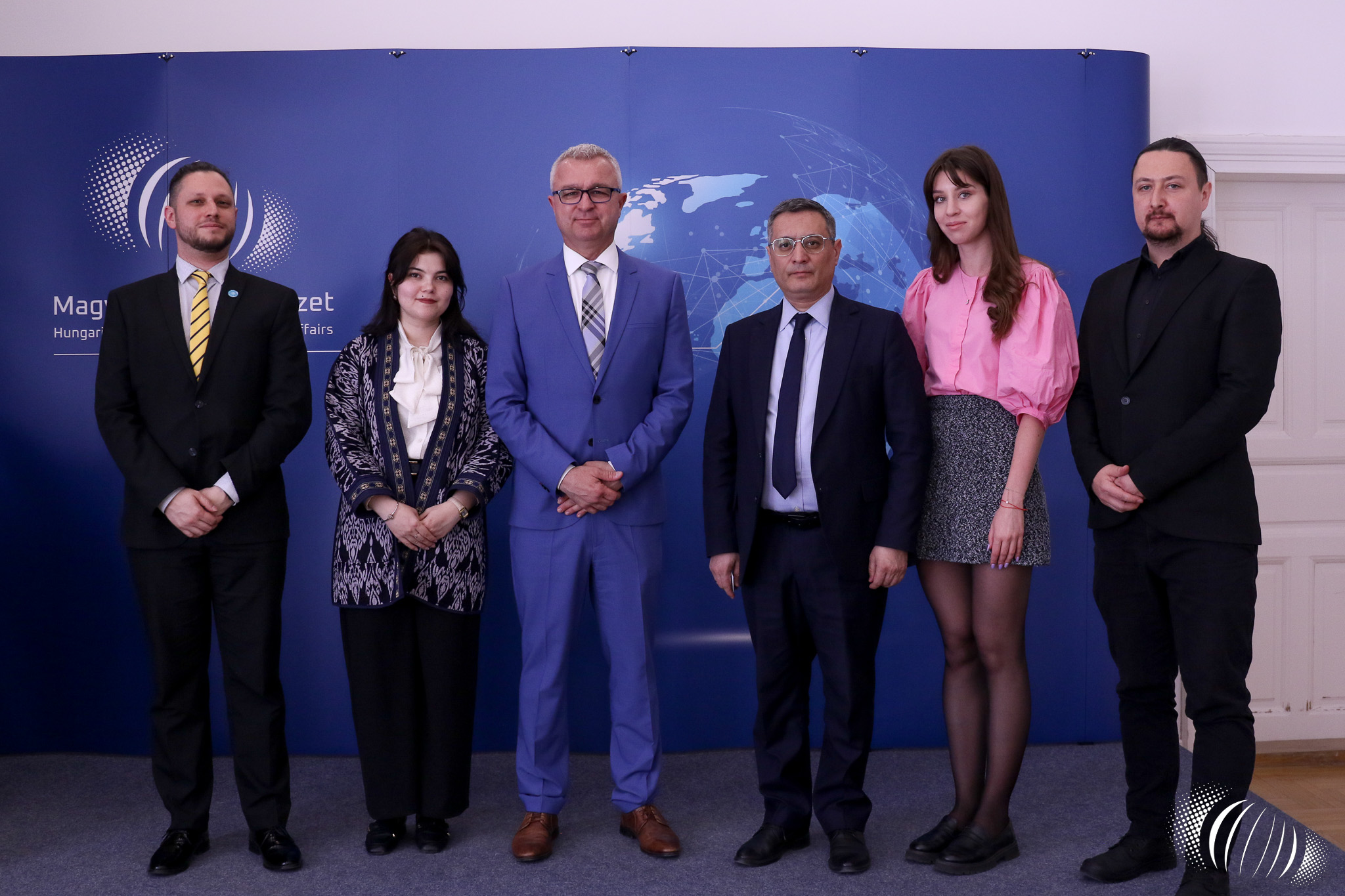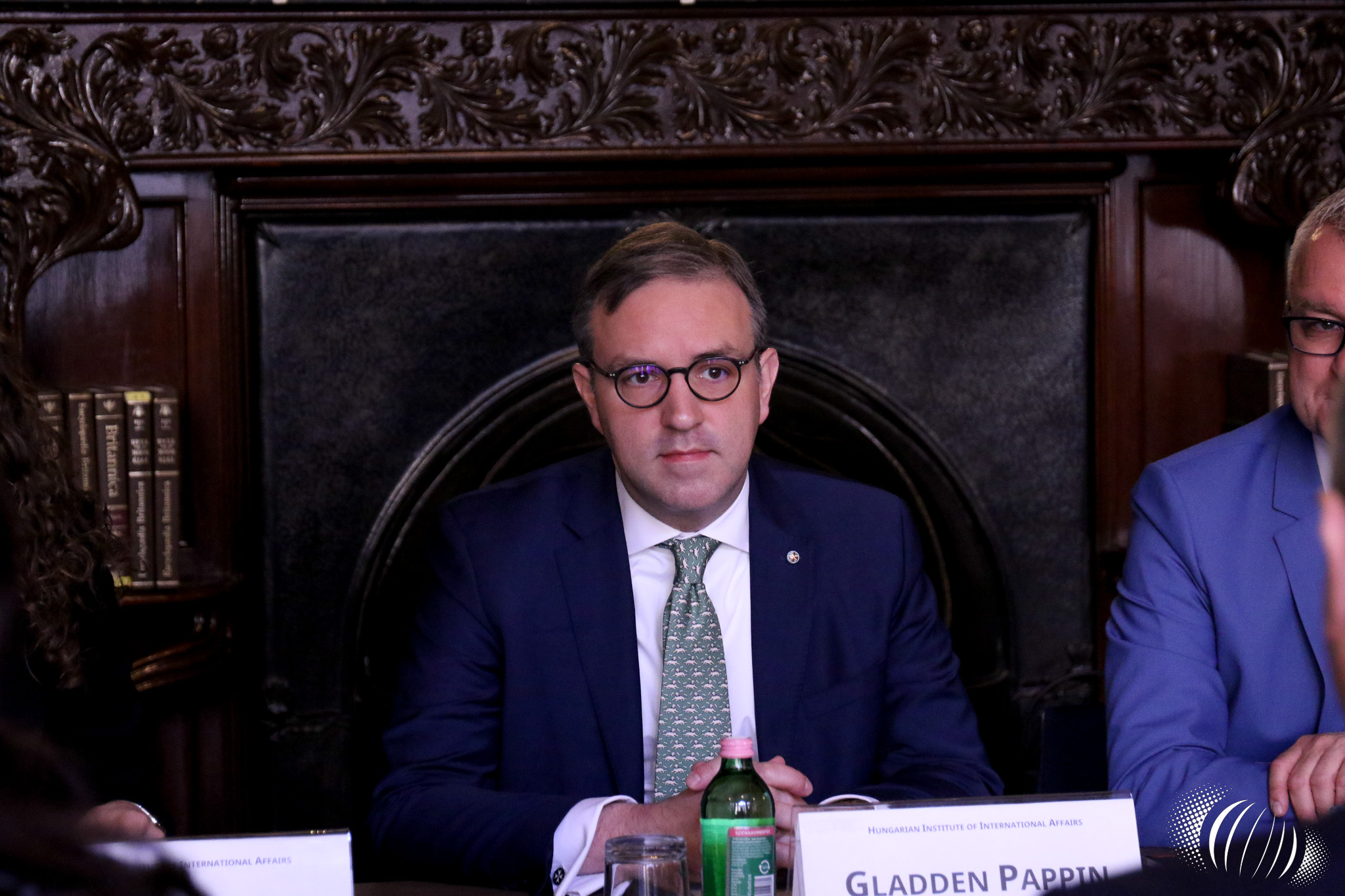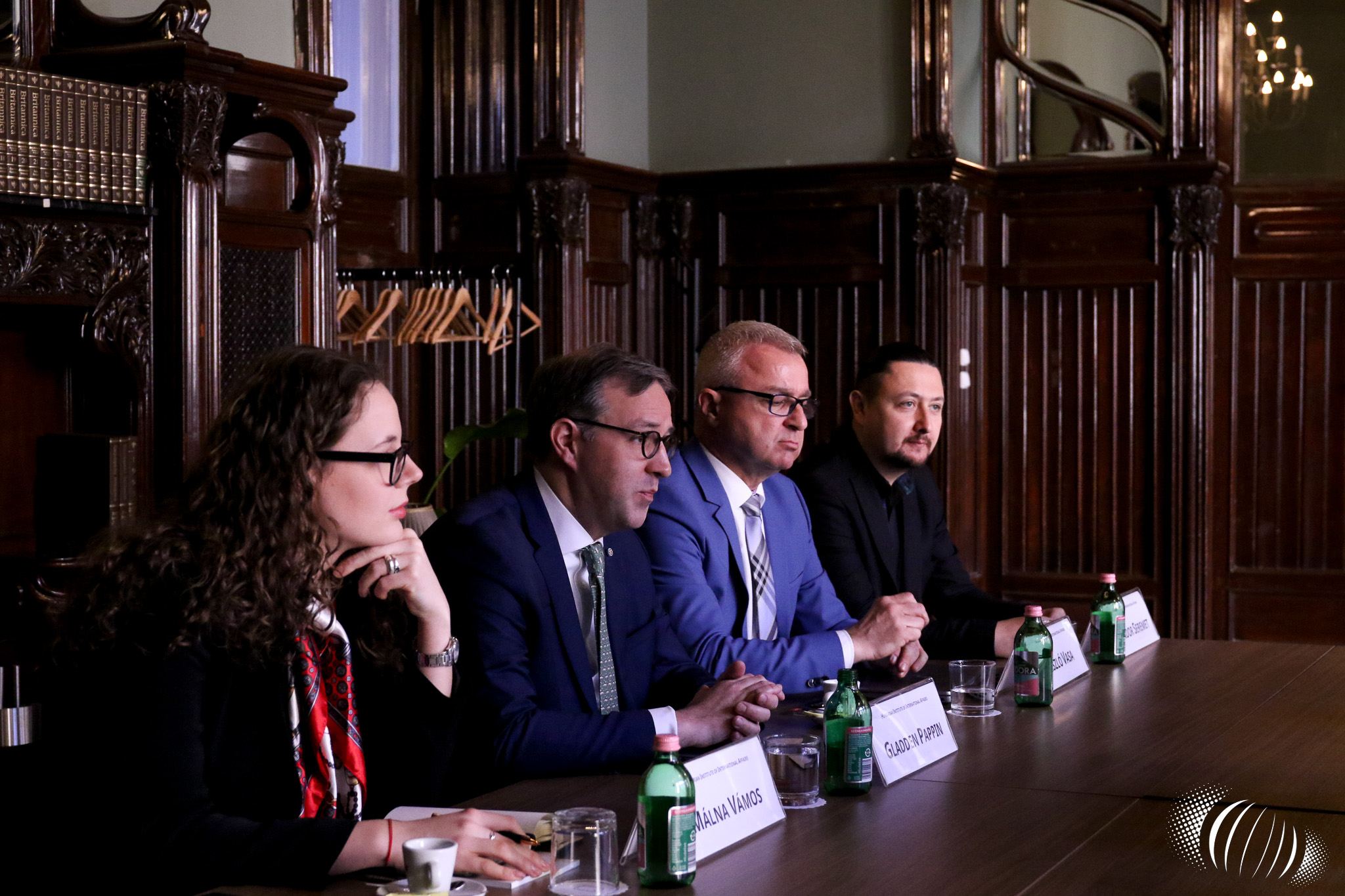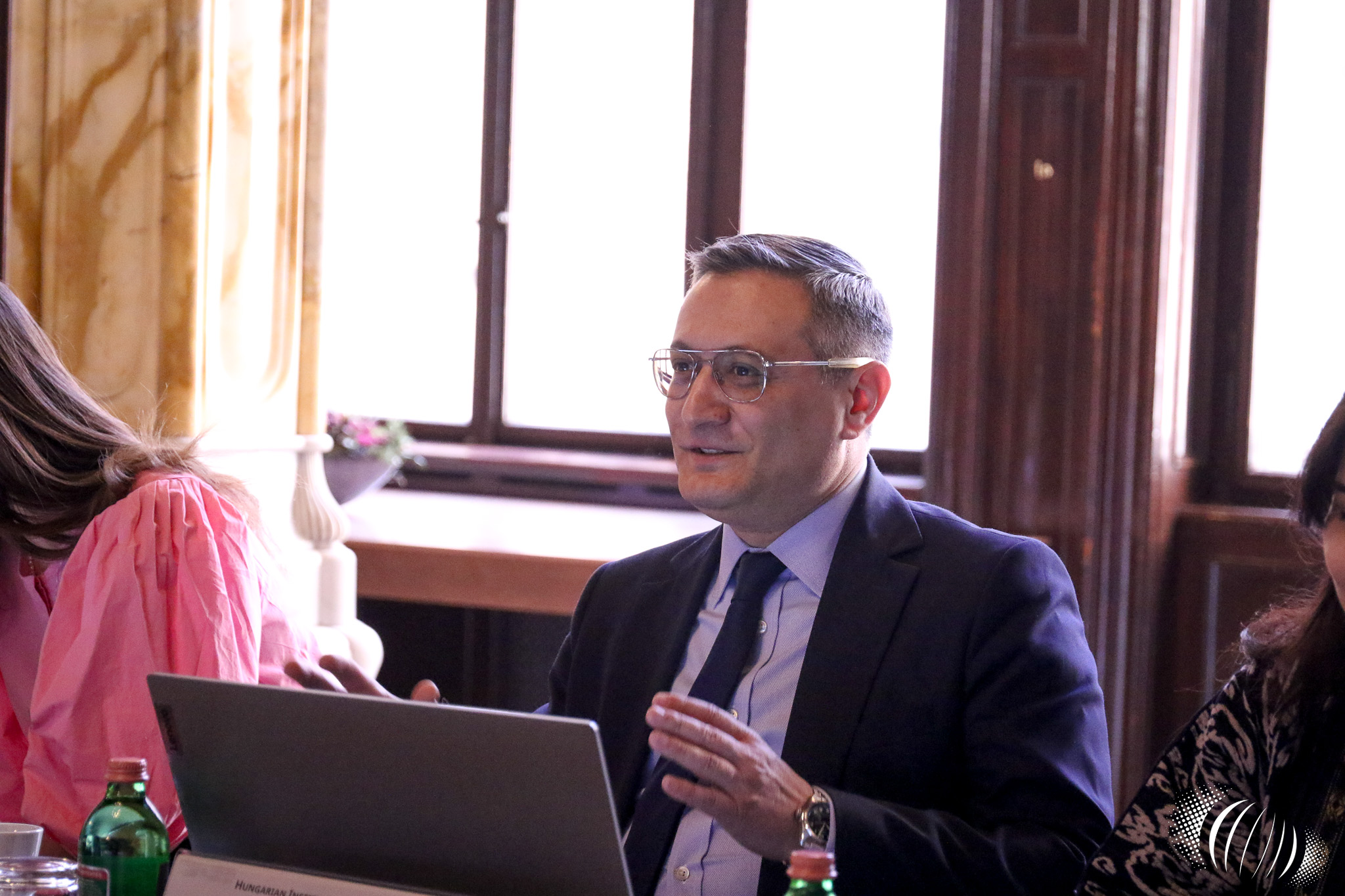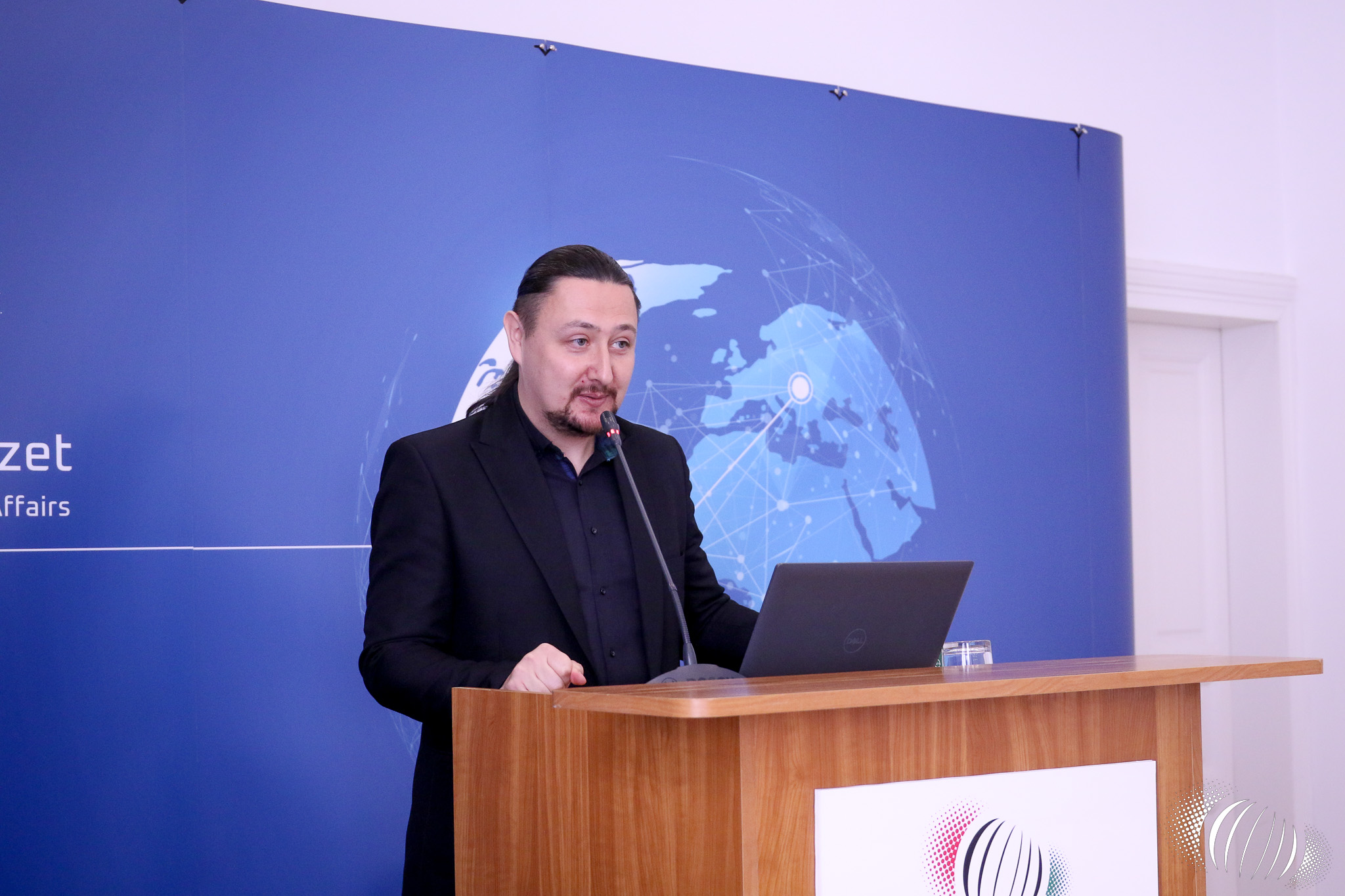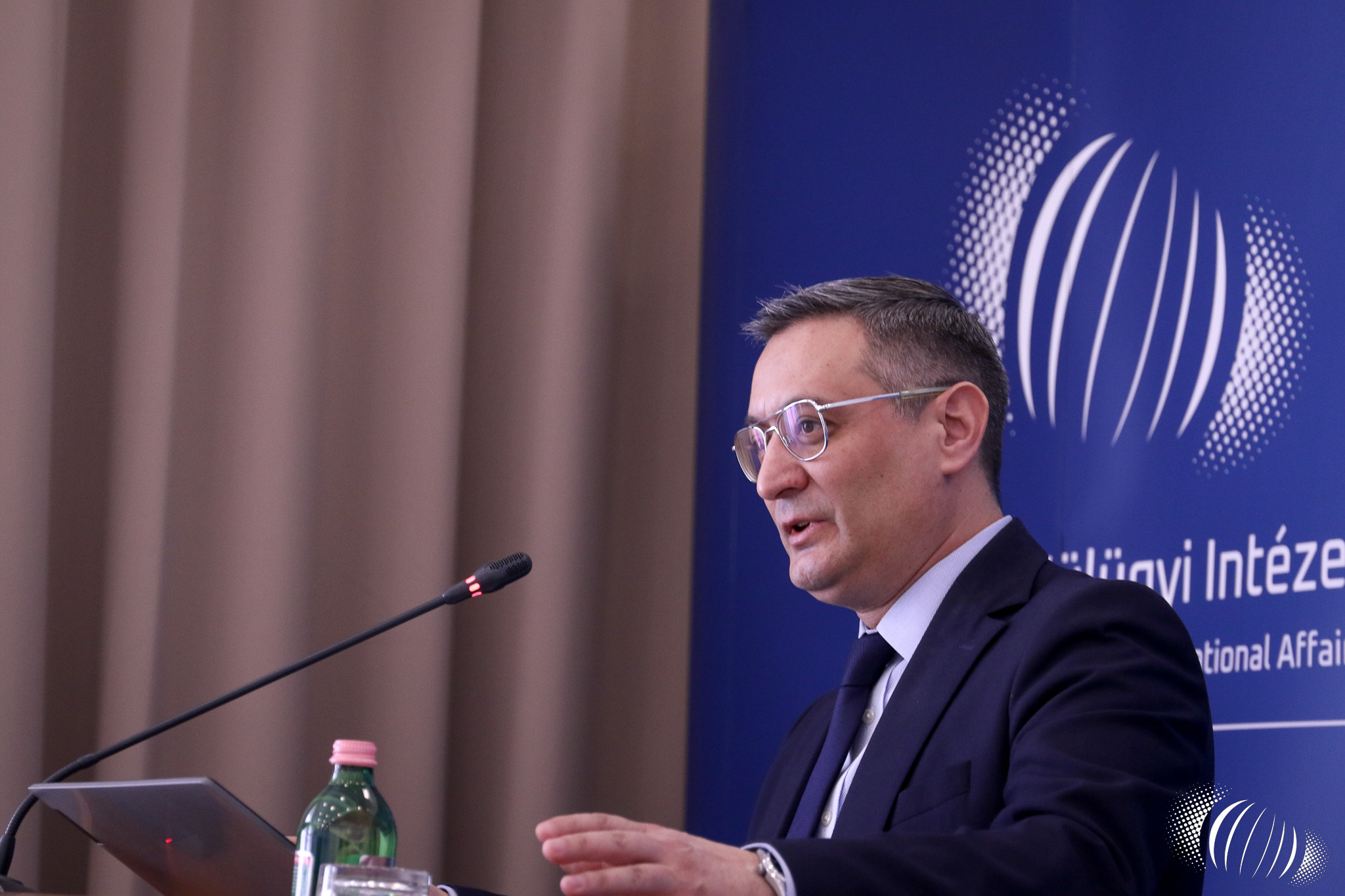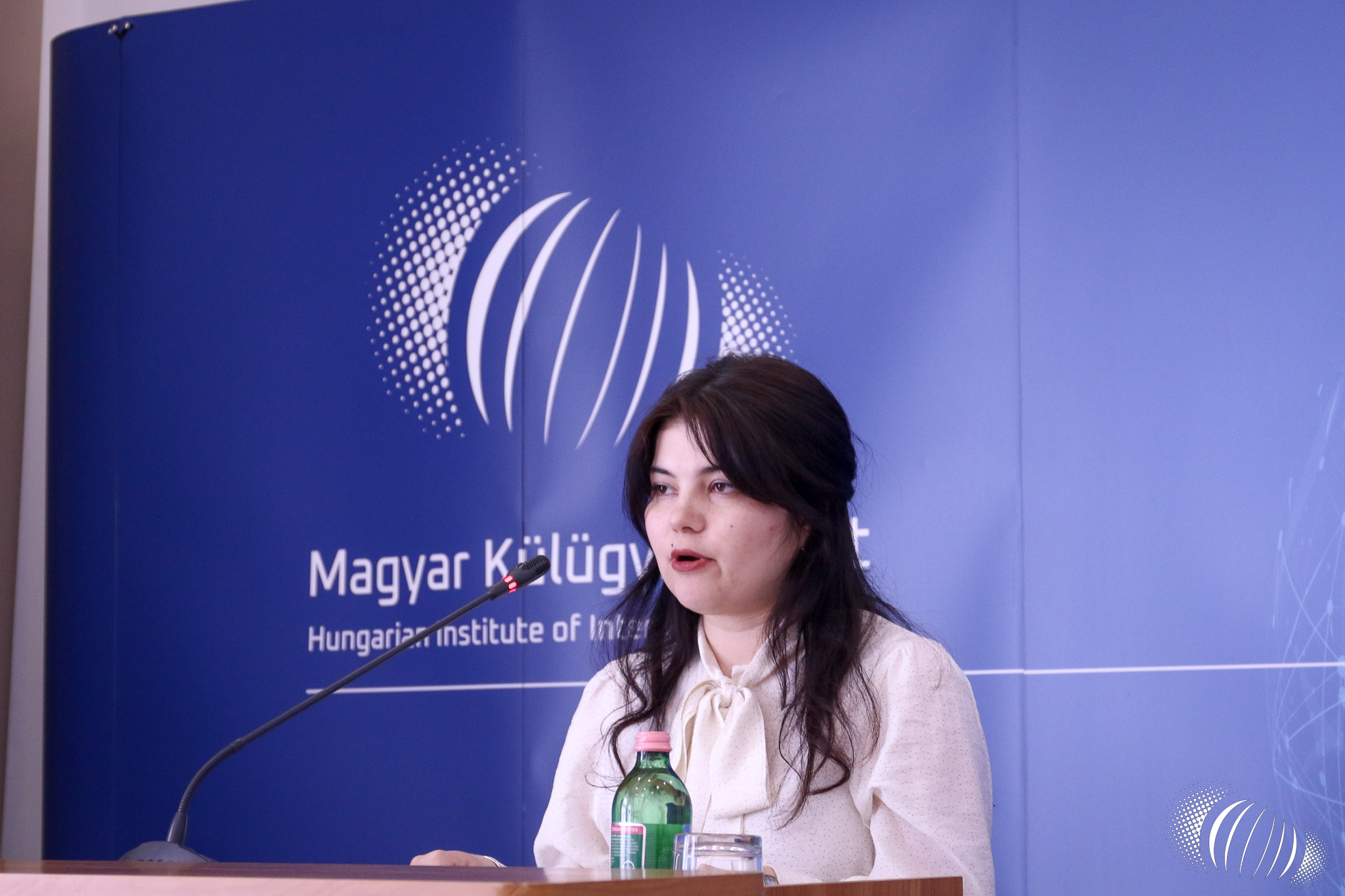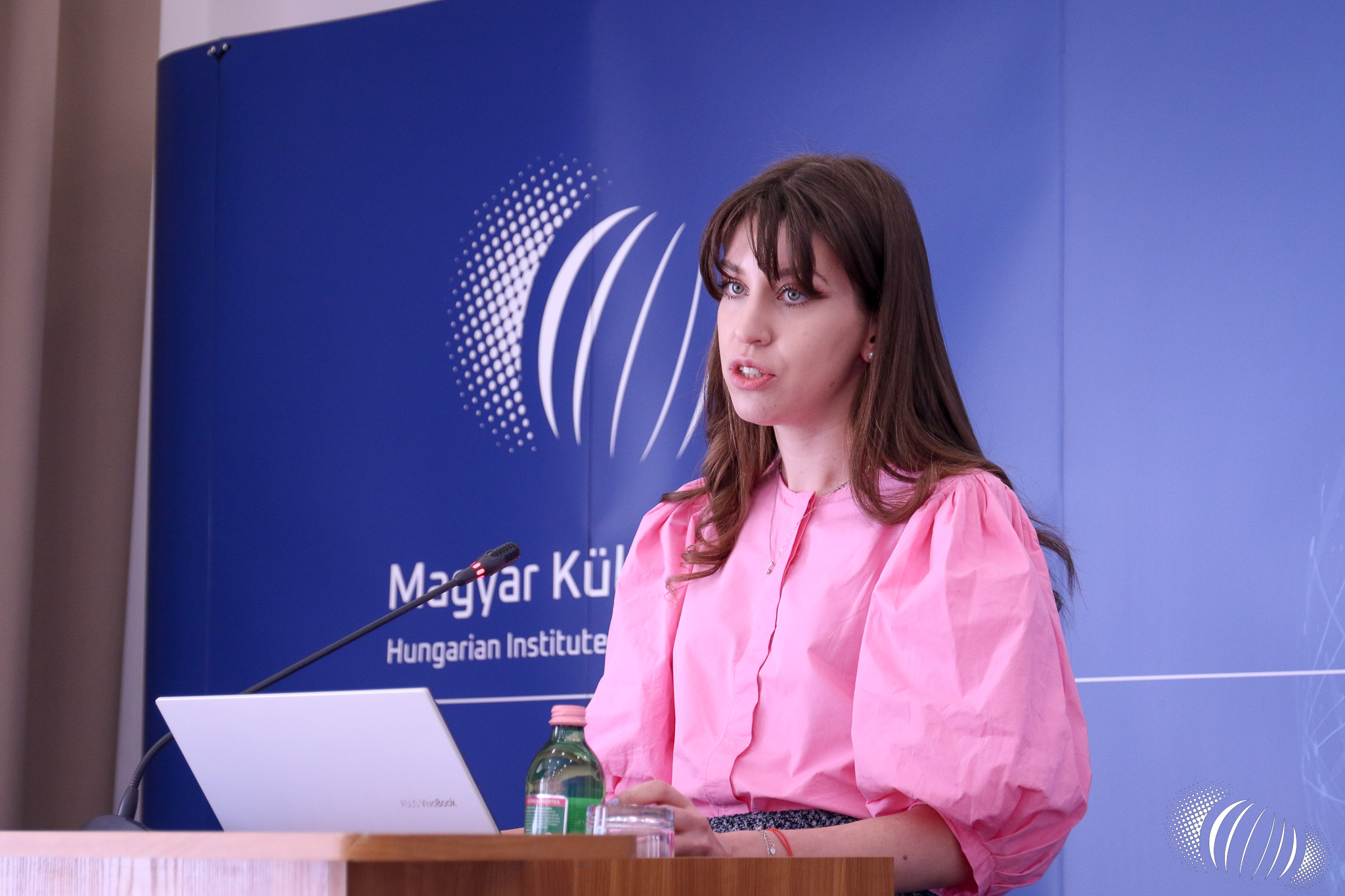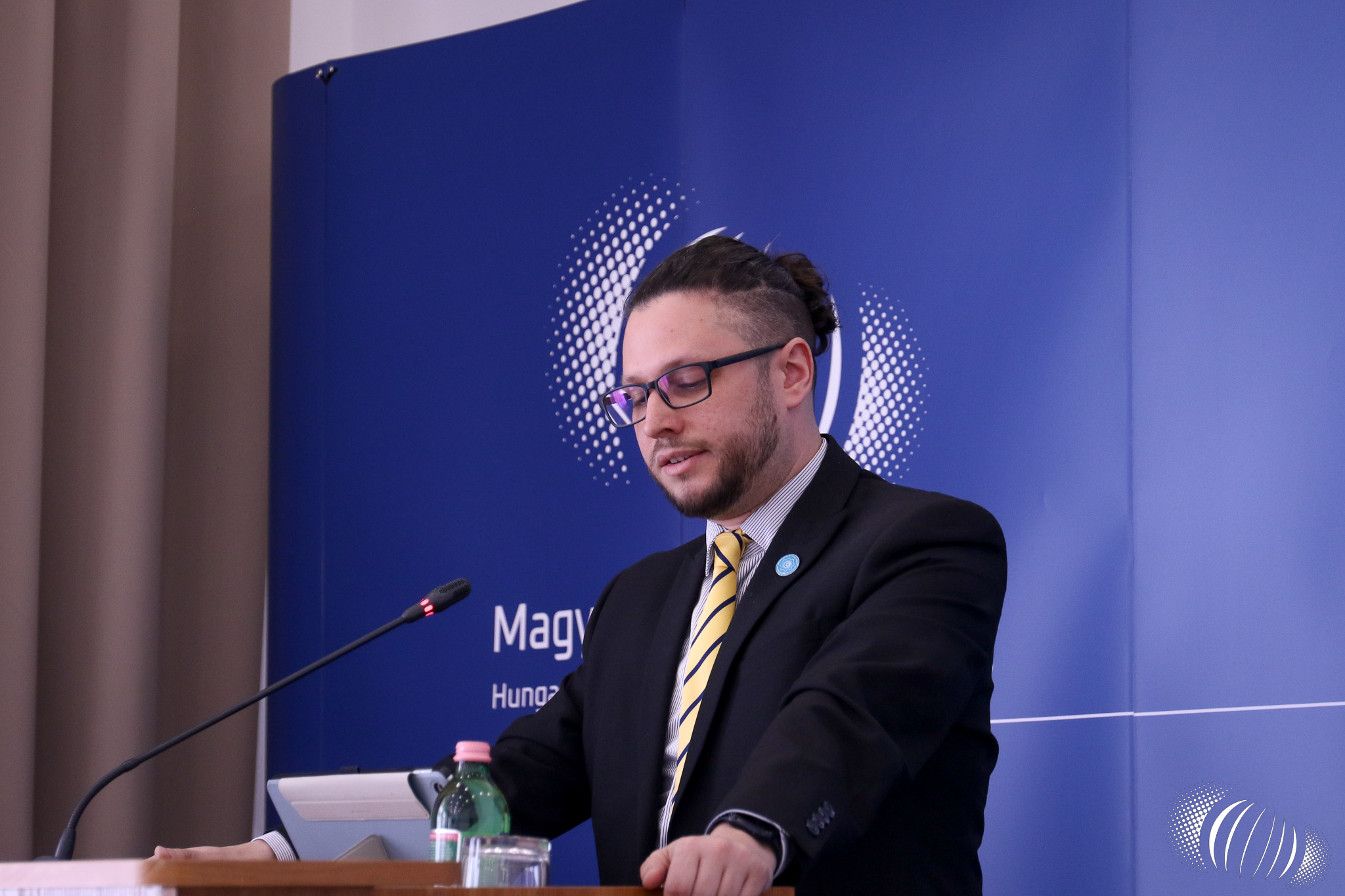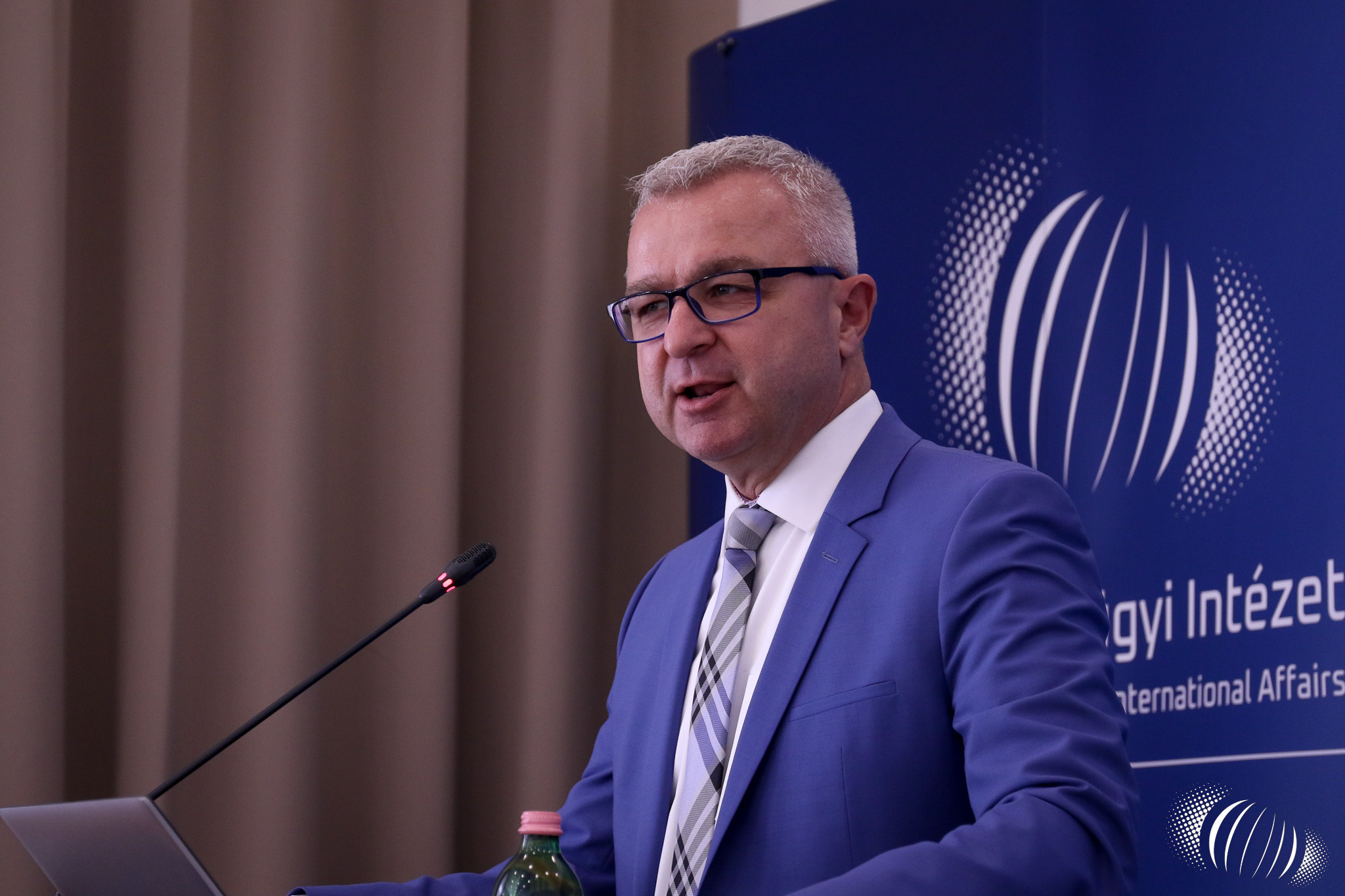On March 21, 2025, the Hungarian Institute of International Affairs (HIIA) held an event titled, “Strategic Partnership in New Condition” in partnership with the Center for Foreign Policy Studies and International Initiatives (CIRS) within the Ministry of Foreign Affairs of Uzbekistan. The speakers included Sanjar Valiyev, Director of the Center for Foreign Policy Studies and International Initiatives, Shakhodat Khoshimova, Senior Research Fellow at CIRS, and Darya Gorelkina, Senior Research Fellow at CIRS, Dávid Bíró, Lead Project Manager at the Representation Office of the Organization of Turkic States in Budapest, and László Vasa, Chief Advisor at the Hungarian Institute of International Affairs. The event was led by HIIA Senior Research Fellow Sándor Seremet.
Sanjar Valiyev started the event by acknowledging Hungary’s position as a strategic partner of Uzbekistan. The partnership between the two countries is mutually beneficial, with the purpose being to raise the standards of living and wellbeing of the people of our nations. Given the first EU-Central Asia summit coming up in Samarkand in early April, the goal of the delegation’s visit to Budapest is to share ideas and exchange in preparation for this summit.
Shakhodat Khoshimova focused on the growing economic partnership between Hungary and Uzbekistan, especially in the areas of trade, investment, and cultural exchange. Cooperation on trade and investment centers on the energy sector, while educational ties are driven by the Stipendium Hungaricum program for Uzbek students. There is also increasing coordination on labor migration, which could be a catalyst for more in depth cooperation in the law enforcement sphere—the interior ministers of the two countries met in March 2025 to discuss this and move the process forward.
Darya Gorelkina emphasized that the positions of the two countries are often aligned on major global issues like sustainable development. Uzbekistan is increasingly facing the consequences of global climate change, which is driving its current interest in protecting water resources, an area in which there is a lot of Hungarian expertise. This too is becoming a major area of cooperation.
Dávid Bíró noted that Hungary is a bridge between East and West—between the EU and the Turkic world. The Organization of Turkic States (OTS) representation office in Budapest is the first OTS office outside of the member states and conducts research activities, organizes events, and hosts high-level diplomatic discussions. One of its particularly notable initiatives is the Drought Prevention Institute, which was established following an MOU signed by the Secretary General of the OTS and the Hungarian foreign minister in 2022.
László Vasa turned to the significance of the Middle Corridor, a series of trade routes passing through Central Asia and connecting China to Europe, which are beneficial for both Hungary and Uzbekistan. While the average time to ship goods from Shanghai to Istanbul by sea in 35 days, it could take only 16 days via the Middle Corridor. It is not only important because of East-West trade but also North-South trade, and the corridor could allow Central Asian countries like Uzbekistan to diversify and scale up their economies if they are able to stop and process goods along the way to add value—something which Hungary has experience with. But a lack of capacity, problems with border controls and tariffs, differing standards, and falling water levels in the Caspian Sea all present obstacles.

